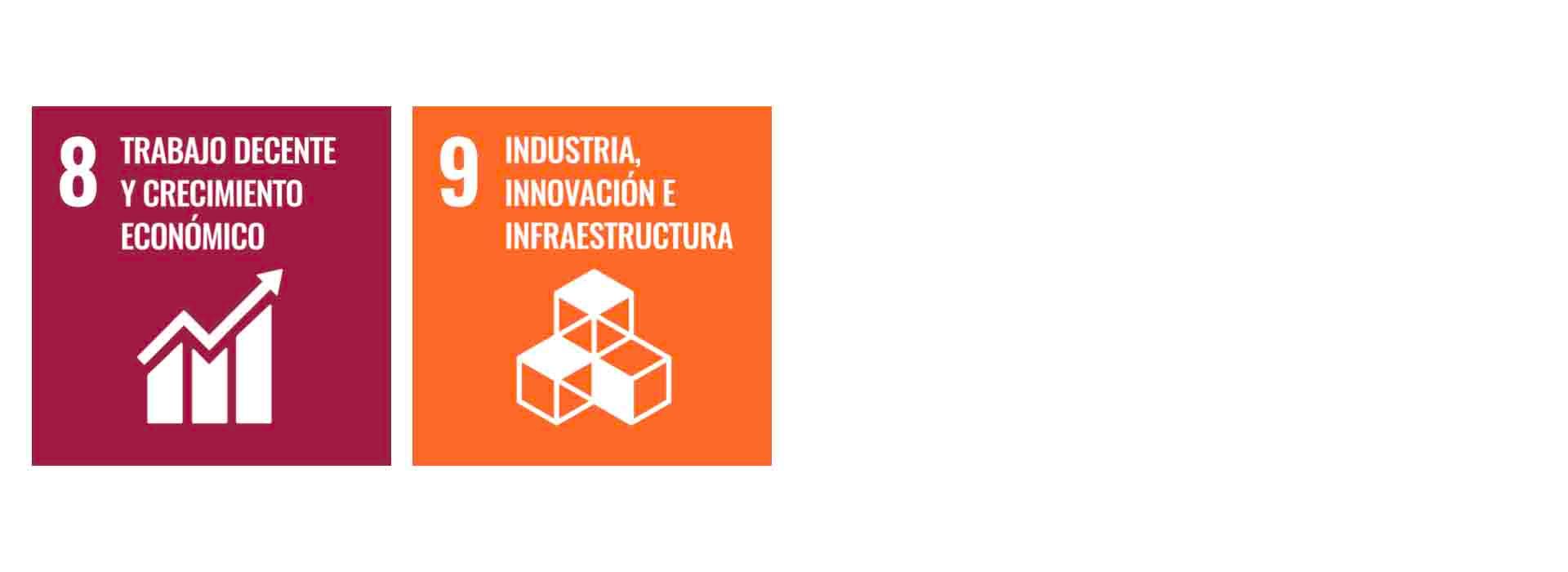Parrondo: "Catalonia is not a reference in blockchain because the involvement of the private sector is insufficient"
23 Noviembre - 2021
"Although the word disruption is often used lightly, in the case of blockchain it is fully justified, and Catalonia cannot remain on the sidelines in this transformation process", warns the director of Postgraduate in Blockchain and other DLT Technologies , Luz Parrondo. For the expert, blockchain is a technology that has two aspects, industrial and financial, and precisely here large industrial companies and especially in the food sector are applying it, but too slowly. Meanwhile, financial startups are growing strong in Madrid.
In 2019, the blockchain industry in Catalonia had a turnover of 9.46 million euros, according to a report presented by the Generalitat de Catalunya at the European Blockchain Convention. The study detected an emerging ecosystem of 76 companies, of which 68% were startups, with a low economic impact, but with a high growth potential. This figure represented an increase of 117% compared to the number of companies registered a year earlier.
Industry, large companies and startups
"The decentralizing power of blockchain is normally deployed when companies are born in this environment, applying blockchain in an existing company is very complicated," says the professor. In this second case, technology is used to improve processes. And this is precisely how it is used by the Catalan companies that are adopting it: certification, traceability, contracts, etc.
"You have to know how to take advantage of blockchain technology, business owners have to know their processes very well to automate them"
On the other hand, companies that emerged directly in blockchain environments are currently startups in the financial sector, which here do not have much representation, but in Madrid they already form a strong ecosystem.
"Catalonia has an economy based on industry and not on finance, that is why industrial initiatives predominate". Thus, Parrondo presents as an example the implementation of blockchain in the Port of Barcelona: "Customs, banks, companies, insurance companies, shipping companies, etc. are joining in a system to automate certification processes. Blockchain is a 24/7 certifier that gives confidence to all actors in a chain".
"You have to know how to take advantage of blockchain technology, business owners have to know their processes very well to automate them. Using blockchain as an RP is like having a Ferrari to take the kids to school. There is fear , misinformation and ignorance. Managers need training to understand this technology and its opportunities", she warns. "With blockchain it will happen as with the internet, the SME will not connect until it is very widespread," she says and predicts that this will happen in about five years.
"The Catalan conservative mood can make us lose the lead of the blockchain and makes us go to the path of other initiatives"
"The Catalan conservative mood can make us lose the lead of the blockchain and makes us go to the path of other initiatives," warns Parrondo. Where we can be a reference in Catalonia is in the sovereign digital identity. Startups such as Astrea or Validated ID have been dedicated to this area for years.
Public sector and block technology
Is enough being done to promote this technology in Catalonia? The professor believes that the public sector is doing a very good job.
From the Generalitat, the Observatory of Blockchain Technologies and several public-private associations, such as the Blockchain Center of Catalonia (CBCat), actions are being carried out aimed at developing the ecosystem, but at the moment they do not have enough strength to compete with the growth engine developed elsewhere. Madrid is becoming the financial epicenter of southern Europe's blockchain technology. It is true that most public and financial institutions of the State are concentrated in the capital, but the impulse also comes from private initiatives such as the Hub Crypto Plaza that has become one of the greatest exponents of the DeFi community in the world. This momentum is still insufficient in Catalonia.
"Catalonia needs the encouragement of private capital and that synergies be created between companies and administrations"
The so-called Blockchain Strategy of Catalonia presented by the Generalitat has the objective of promoting the implementation of blockchain in the country. But it's not enough. "Catalonia needs the encouragement of private capital and that synergies be created between companies and administrations", says Parrondo. Here is where CBCat, created by the Chamber, tries to promote the adoption of digital assets and decentralized technology through dissemination campaigns and digital literacy. The objective of the CBCat is to connect startups and investors, energize the ecosystem, develop talent and act as a bridge between academic research and industry, creating synergies and grouping initiatives that until now were disseminated and segmented.
"Catalonia is not a reference in the blockchain industry because the involvement of the private sector is insufficient. We have an ecosystem with potential, but with low economic impact because it is made up mainly of startups. Despite the efforts made by the institutions, if the private sector does not enter the game, we will lose the opportunity to sit in the front rows", she concludes.

